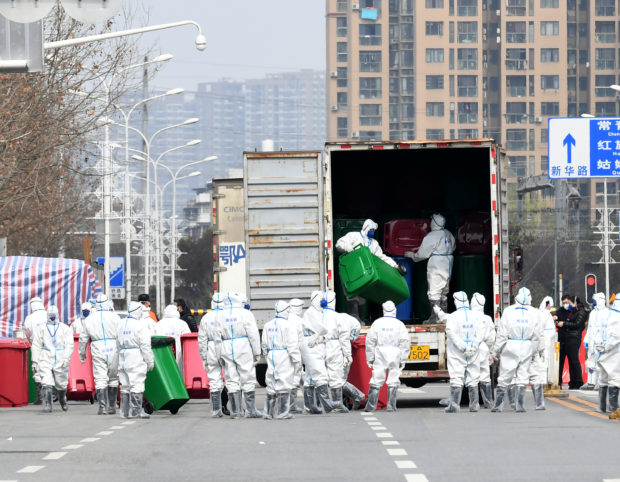Countries urged to halt sale of live wild mammals at markets

GENEVA — International agencies, including the World Health Organization (WHO), urged countries on Tuesday to suspend the sale of live wild mammals in food markets, warning they may be the source of more than 70% of emerging infectious diseases in humans.
The guidance, aimed at ensuring the global food system is safe and sustainable, follows a WHO-led mission to Wuhan, China, to investigate the origin of the new coronavirus SARS-CoV-2.
“This + [plus] other recommendations will contribute to < the risk of emerging #zoonoses,” Peter Ben Embarek, the WHO official who led the January-February mission, said in a tweet.
The WHO, the World Organization for Animal Health (OIE), and U.N. Environment Programme (UNEP) urged national authorities to: “Suspend the trade in live caught wild animals of mammalian species for food or breeding purposes and close sections of food markets selling live caught wild animals of mammalian species as an emergency measure unless demonstrable effective regulations and adequate risk assessment are in place.”
They said animals, particularly wild animals, were reported to be the source of more than 70% of all emerging infectious diseases in humans.
Article continues after this advertisement
FILE PHOTO: Workers in protective suits take part in the disinfection of Huanan seafood market, where the novel coronavirus is believed to have first surfaced, in Wuhan, Hubei province, China March 4, 2020. cnsphoto via REUTERS.
China last year banned trade in wildlife for human consumption but legal loopholes allow some disease-prone species to be farmed, according to regional experts.
Article continues after this advertisement“This is not a new recommendation, but COVID-19 has brought new attention to this threat given the magnitude of its consequences,” WHO spokeswoman Fadela Chaib told a news briefing.
The WHO-led team, which visited the Huanan market in Wuhan where the first human infections of COVID-19 were detected, said the new virus had probably been transmitted from bats to humans through another animal.
“When wild animals are kept in cages or pens, slaughtered and dressed in open market areas, these areas become contaminated with body fluids, feces, and other waste, increasing the risk of transmission of pathogens to workers and customers and potentially resulting in spillover of pathogens to other animals in the market,” the guidance said.
Most emerging infectious diseases such as Lassa fever, Marburg hemorrhagic fever, and Nipah viral disease have wildlife origins, it said.
For more news about the novel coronavirus click here.
What you need to know about Coronavirus.
For more information on COVID-19, call the DOH Hotline: (02) 86517800 local 1149/1150.
The Inquirer Foundation supports our healthcare frontliners and is still accepting cash donations to be deposited at Banco de Oro (BDO) current account #007960018860 or donate through PayMaya using this link.